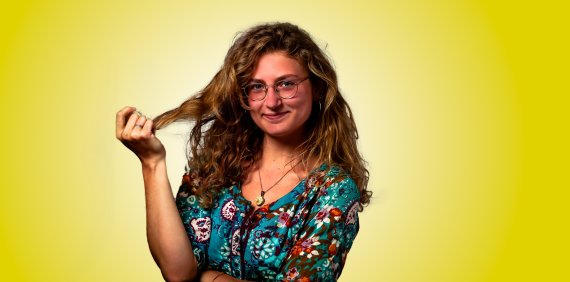© Sven Menschel In the picturesque and creative student community of Droevendaal a lot happens: arts, sports, dinners, parties, festivals. But, of course, much revolves around food. And it’s not just about gardens. Yes, we have vegetables, herbs, some fruits trees. Even chickens, that now roam around freely as in all winter months. It’s not even about shared food or shared purchase of bulk organic goods. Which we actually do, periodically, ordering kilos and kilos of dry or long-storage organic goods for a convenient price with the whole community. When I moved into my house, there were 25 kilos of couscous awaiting to be eaten. We managed, in approximately one year. But it’s not just about that.
It’s very cool to see how much can happen when people with similar ideas come together
At our doorstep
For some reason, Droevendaal is the anti-food-waste place where a lot of otherwise lost food ends up. And we don’t really go look for it: it appears at our doorstep. We receive all kinds of things – and we warmly welcome them. The most recent example was the rescue of onions directly from the farms, given away (with a little offer) at the roundabout. Some produce from Unifarm or Droevendaal experimental farms reaches the Droevendaal lands: potatoes, carrots, bean plants, lettuce plants, and other goods from various (safe) experiments, that cannot be sold by law, are happily eaten here. During the AID, usually, lots of unopened bags of bread reache the Droef entrance and are regularly saved. Many Saturdays, very ripe or slightly ugly produce from the market in Wageningen is also brought here by Droevendaalers, and there we go with one week of non-stop guacamole, or strawberry jam making. Even some farmers directly reach us and come knock at our doors. Recently, an organic potato farmer sold many kilos of his freshly harvested purple tubers through a day-long door-to-door operation. 300 kilos gone in a few hours.
Fun and tasty
All of this is not only sustainable, farm-to-fork and fully anti food-waste: it’s also lots of fun – and taste. Big quantities mean we have to come up with a variety of recipes for the same exact ingredients, and it rarely gets boring. It’s very cool to see how much can happen when people with similar ideas come together. From whole-sale orders to food-waste prevention, Droevendaal seems a great example of how small communities can source and use food in a different, sustainable way.
Donatella Gasparro is a master’s student in Organic Agriculture; she hails from Italy.

